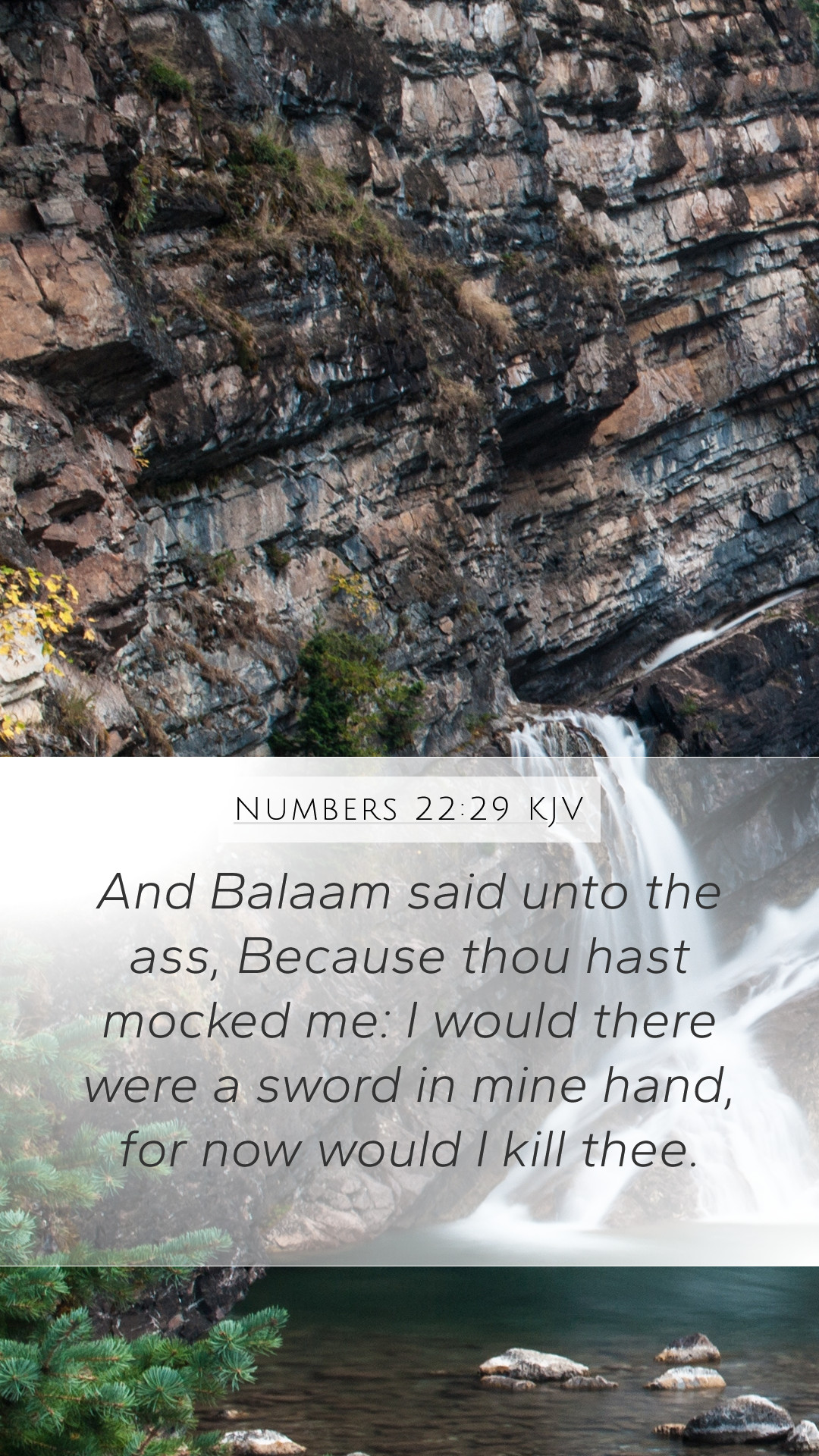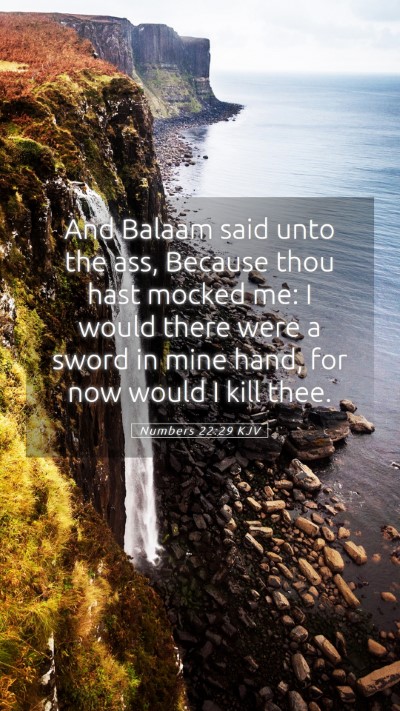Understanding Numbers 22:29
In this passage from the Book of Numbers, we encounter the incident involving Balaam and his donkey, which serves as a critical moment of divine intervention and revelation.
Verse Context: Numbers 22:29 states, "And Balaam said unto the donkey, Because thou hast mocked me: I would there were a sword in mine hand, for now would I kill thee." This is a moment filled with irony and teaches several important lessons about obedience, divine communication, and the absurdity of human arrogance in the face of divine will.
Insights from Public Domain Commentaries
Matthew Henry's Commentary
Henry highlights the foolishness of Balaam's responses and the sheer absurdity of his actions. Balaam, who is supposed to be a prophet, does not recognize that the donkey is speaking to him by divine will. This speaks to a larger message of spiritual blindness.
- Obedience of Creation: The donkey sees the angel, but Balaam, a prophet, does not; it underscores the theme that all of creation obeys God's command.
- Human Pride: The passage illustrates how pride can blind individuals to truth. Balaam’s anger towards his donkey reflects his inability to understand the spiritual dimension of his circumstances.
Albert Barnes' Notes on the Bible
Barnes elaborates on the nature of Balaam's wrath and the symbolic connection to human emotions that lead to reckless decisions, especially when challenged by those deemed less significant.
- Symbol of Human Weakness: The donkey represents those dismissed by society, yet it plays an essential role in revealing God’s truth.
- Conditional Awareness: The moment reveals that spiritual insight is conditional and often obscured by interpersonal frustrations.
Adam Clarke's Commentary
Clarke explores the implication of Balaam's intentions and motives, indicating that Balaam's decisions come from a place of personal ambition rather than divine guidance.
- Misguided Intent: Clarke emphasizes that Balaam sought worldly gains through his prophecies, which leads to the subsequent confrontation with the Lord's will.
- Call for Reflection: This passage calls readers to reflect on their ambitions and how they align with divine intentions.
Key Themes and Interpretations
The verse is a remarkable blend of humor and seriousness, emphasizing God's oversight of all creation. Here are some key takeaways:
- Divine Communication: The ability of God to use a donkey for His purpose illustrates the lengths to which He will go to ensure His will is understood.
- Understanding Failure: The passage also serves as a warning against ignoring God’s signs and messages, which can come from unexpected places.
- Pride versus Humility: Balaam’s pride blinds him and incites a misguided wrath, contrasting the humility that should accompany divine service.
Cross References
For a more profound understanding of Numbers 22:29, consider these related verses:
- 2 Peter 2:15-16: Refers to Balaam's erroneous way and his encounter with the donkey, providing further insight into his character.
- Revelation 2:14: Mentions Balaam as a figure of corruption in spiritual leadership.
- Jeremiah 8:7: Reflects on how the creatures of nature understand God's commandments better than man at times.
Conclusion
In summary, Numbers 22:29 serves as a multifaceted verse in Scripture that sheds light on the themes of obedience, pride, divine communication, and the importance of recognizing spiritual truths. Its lessons remain applicable in our lives today, reminding us to maintain a humble heart and to be open to the ways God communicates with us, even through unexpected means.
This exploration of Bible verse meanings aims to enhance understanding and interpretation for Bible study groups and individual readers. Utilizing various Bible study tools and resources can further deepen one's grasp of such passages.


